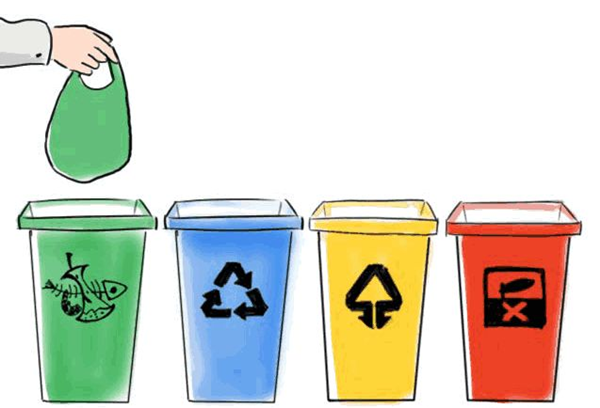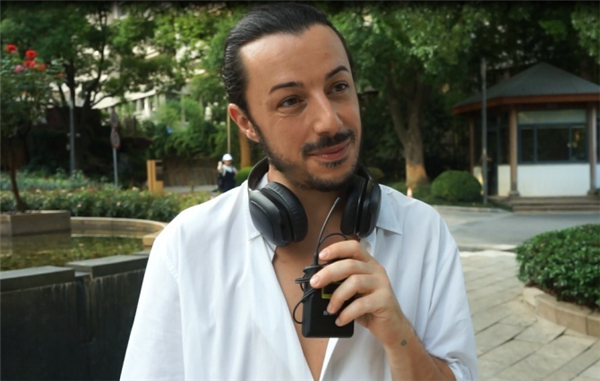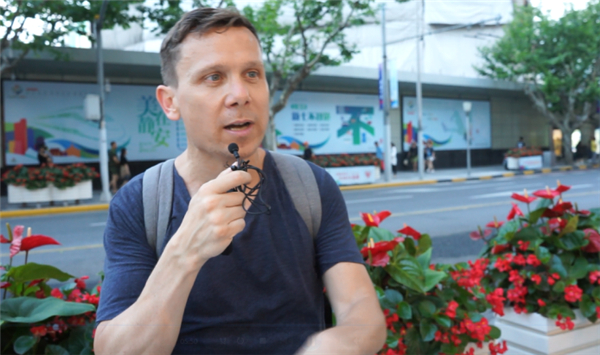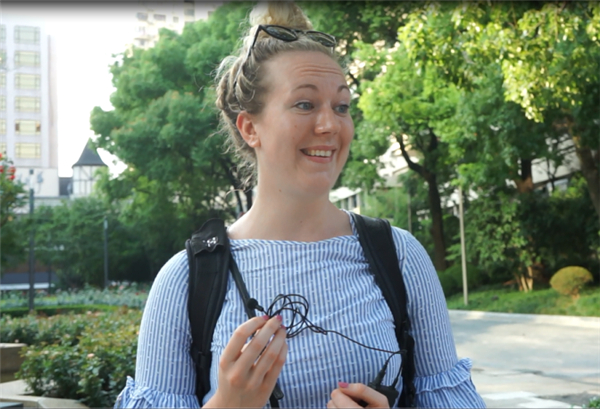
Starting from July 1, Shanghai will welcome a new age of mandatory garbage sorting. Though some residents might still be struggling with whether the contents of their bins are classified as wet, dry, hazardous, or recyclable, they are getting used to it.
Why does garbage sorting matter?
Before the sorting regulation officially took effect, the city has been promoting the practice, especially in residential communities. “There are a lot of notices all around the neighborhood,” said Matteo, who has found there are designated waste bins in his community and every morning there are some elders from the neighborhood committee telling people about how they’re supposed to sort their waste. But it is not difficult for him to follow the rules, as his home country Italy has had waste sorting regulations for about a decade.

(Matteo)
Shanghai’s efforts to sort household garbage, in his opinion, “is a good thing and it’s about time”. “It’s really something that we should be doing everywhere in the world,” said Matteo. Now the only thing he has to do is buy separate bins for his own apartment.
Lisa is an international student from Germany, a country that has stricter garbage sorting regulations. Starting from May, her university has been promoting the rules across the campus. Now in her dormitory, they have two different waste bins. Outside the dorm building, there are four designated bins. For her, if such a populous nation as China embraces garbage sorting, it will really make a difference.

(Lisa)
For Gonzalo, a fresh PhD graduate from Shanghai University, the city’s waste sorting scheme is very good news. Having heard people talking about it in WeChat groups, he likes the scheme. “One of the reasons that I like Shanghai,” he said, “is that it is a very modern city, always promoting policies friendly to nature and the environment.”

(Gonzalo)
Differences between countries in garbage sorting
The Shanghai Household Garbage Management Regulations require people to classify their household garbage into four types of waste: dry garbage, wet garbage, hazardous waste and recyclable trash, or they will be fined up to RMB 200.
But in New York City, garbage sorting has been made into law. According to Richard, who comes from the US, “it is the law that you have to separate your recyclables and your waste. Because it is a law, people have gotten used to it. So in New York City, it is normal. You separate your recyclables and separate your waste.”

(Richard)
Also for Gonzalo, who comes from a small town in Argentina, sorting garbage has become a habit. Though each province in Argentina has its own regulations, it was around 20 years ago that his hometown started to sort household waste. People throw fruit, plastic, and different types of waste into designated bins. “At the beginning, it was difficult. But then, after one month, it’s very common for you. If you start to do something, and you repeat to do it every day, it’s not going to be difficult.”
Josephina from Copenhagen, Denmark, also believes it is a natural thing for people to sort their garbage. Compared with China, she said the Danish “have more different waste bins or garbage bins to sort: hard plastic, soft plastic, food waste, organic waste, paper, everything that you can imagine.” For her, she thinks it is not difficult to complement the rules.“People really think of what to do with the waste. They are thinking of the environment.”

(Josephina)
In Germany, garbage and recycling is equally in depth. Throwing out the trash is almost a certified skill. For instance, glass is sorted by color, with there being different slots for depositing green, brown and clear glass. The other bins that German people will encounter are color-coded: green, blue, yellow, brown and gray.
While Shanghai isn’t at that level yet, today’s new garbage sorting regulation is likely the first step to join these most forward-thinking of countries. And hopefully, along with thoughtfully disposing of their trash, citizens and companies will begin thinking about generating much less of it in the first place.
